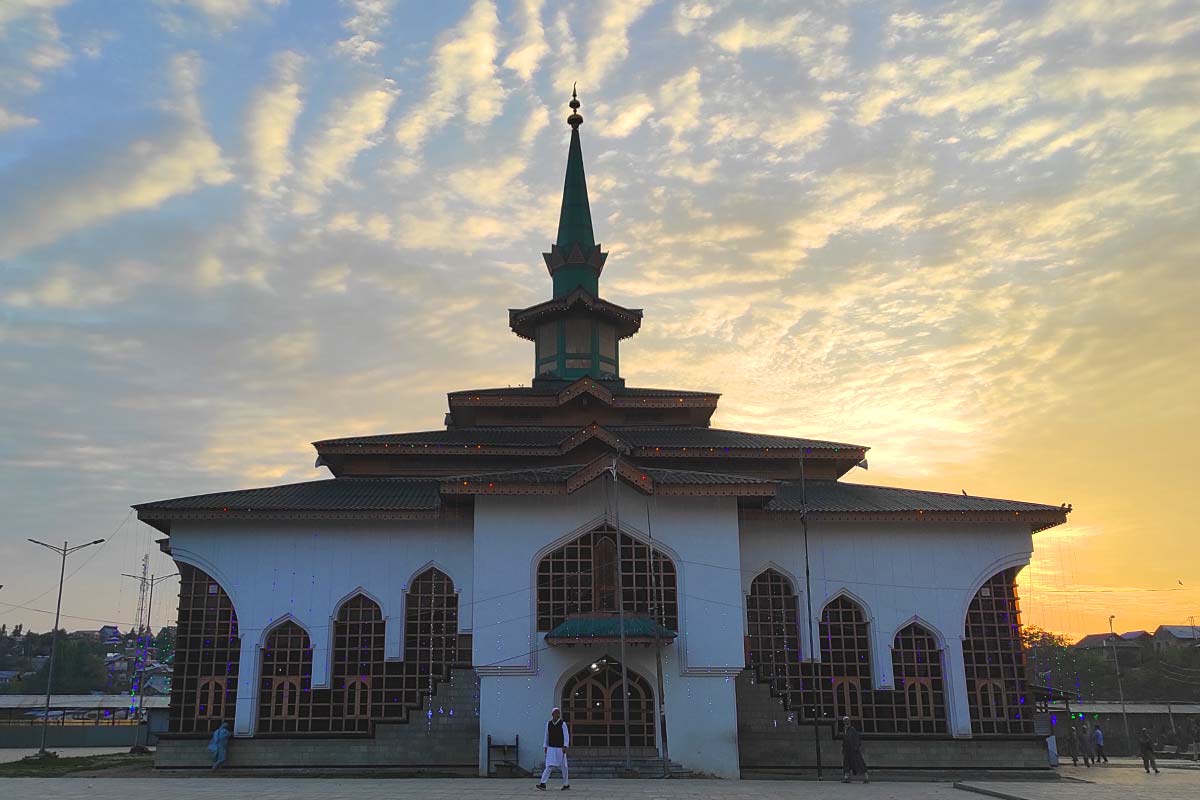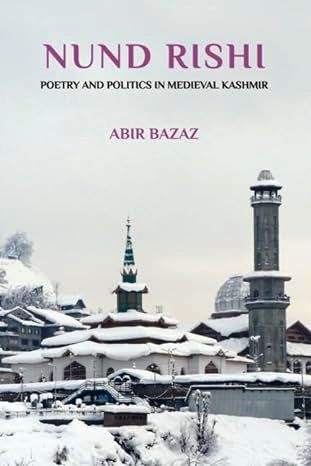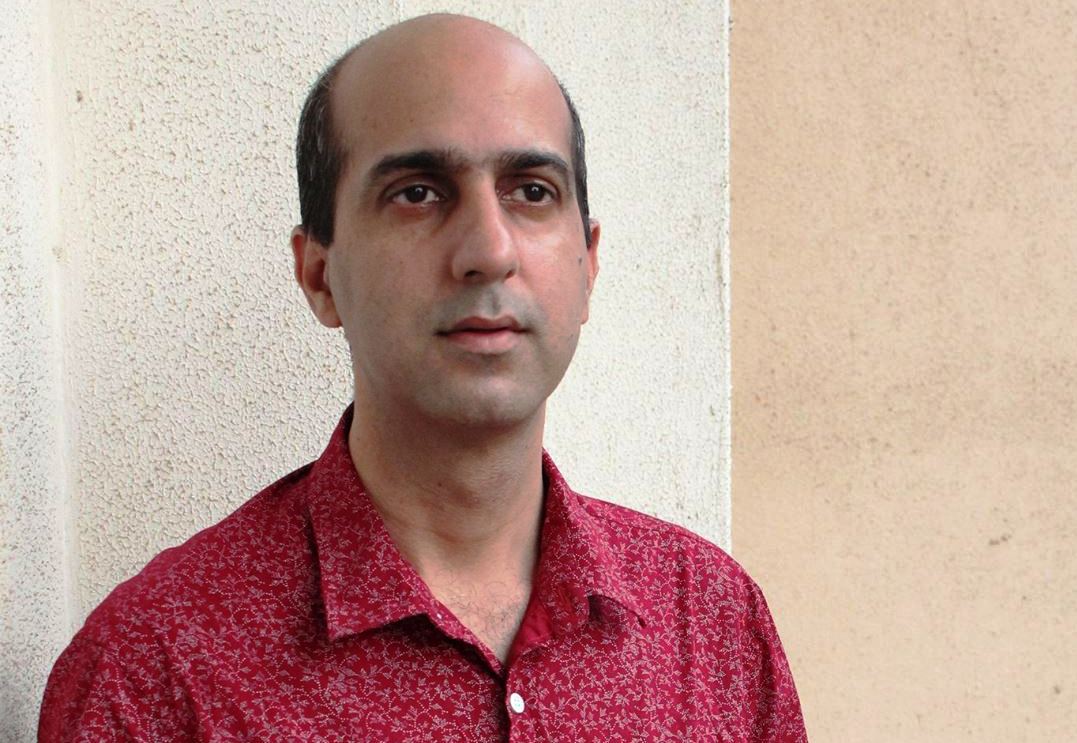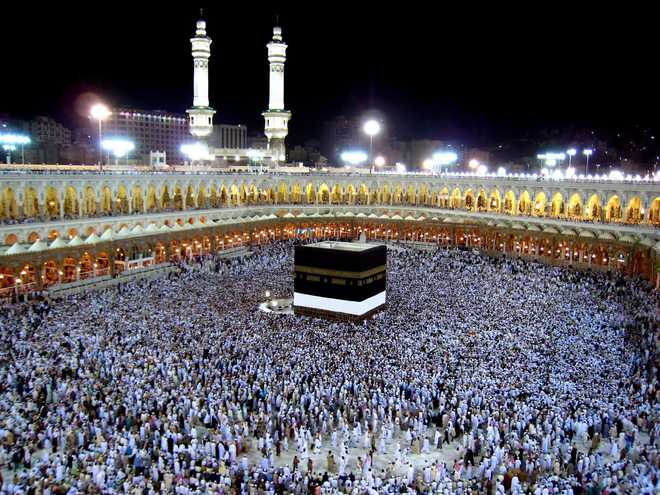by Haroon Rashid
The author has not dealt, as he was supposed to, with the political milieu or for that matter what the author indicates the political theology of Nund Rishi’s times, which was exclusionist and exploitative. If not a separate chapter, at least a sub-chapter should have been devoted in the book to discuss comprehensively that particular political theology against which Nund Rishi initiated his Negative political theology

Abir Bazaz’s recent book Nund Rishi: Poetry and Politics in Medieval Kashmir is the second published book on Kashmir by Cambridge University Press in the last few years after Shehla Hussian’s Kashmir in the Aftermath of Partition. This book is an updated version of his Doctoral Dissertation titled The Negative Theology of Nund Rishi (1378-1440): Poetry and Politics in Medieval Kashmir (online available) submitted to the University of Minnesota in 2016.
The book’s strength lies in its approach and style which tries to situate Nund Rishi’s (14th-15th century AD saint of Kashmir and the founder of Muslim Rishi order) poetry and movement i.e. Rishism in a border theoretical and discursive frame. This book is very substantial for students, researchers and common readers interested in studying an interface between society, religion and politics.
A thorough reading of the book reveals that the text mainly hinges around an argument that the Negative Political Theology of Nund Rishi i.e. Rishism, emerged as a dissent against the Political Theology of medieval Kashmir, represented by Kashmiri Sultanate and Central Asian Sufis, especially Kubrāwiyyā order.

The first chapter, The Sahaja Islam of Nund Rishi, is devoted to the interrogation and discussion of the version of Islam Nund Rishi practised and preached. The author refers Nund Rishi’s version of Islam as Sahaja Islam, based on his certain Shruks (poetic quatrains) where he subscribes to the word Sahaja for Quran and Islam. The term Sahaja is neither Arabic nor Persian rather Sanskrit, carrying various meanings like spontaneous, simple, innate etc.
But the author has subscribed to this term in the context of simple, thus, he meant by referring Sahaj Islam as a simple religion. But the question arises as to why Nund Rishi used the Sanskrit term Sahaja to define Islam or the Quran. The author offers us a few explanations for the same.
Firstly, he informs us, Nund Rishi preached Islam in Hindu-Buddhist vocabulary as people of Kashmir were familiar with the same terminology owing to their Hindu-Buddhist faiths, thus, in his poetry, one can find words like Siddha, Swarga, Sahaja, Ahaṅkāra, Krodha, Moha, Lobha etc.
Secondly, his version of Islam was different from orthodox theological Islam and even mainstream Sufi theological Islam. His version of Islam had a place for celibacy, vegetarianism and asceticism. Not only this, Nund Rishi even criticized orthodox theological Islam represented by Muslim clergy by taking Mansur Al-Hallāj as a reference point, to whom French scholar Louis Massignon refers the first mystic and martyr of Islam, who under Abbasside Caliphate became a sacrificial goat at the hands of theologians. Similarly, Nund Rishi also expressed dissent with the Sufi missionaries of Central Asia because they wanted sultans of Kashmir to rule through Shari’ah or Islamic law. Thus, it’s here when Nund Rishi’s movement has been conceptualized by the author as negative political theology.

The second chapter titled Practicing Death endeavours to analyse the concept of death in Nund Rishi’s poetry. The author at the very outset declares that the insight for investigating such a theme has been taken from an essay written by Professor Rehman Rahi titled Shaikh Al Ālam Saṇz Shāirāna hasiyath. Then, the chapter entirely makes an explanation of the concept of the death of Nund Rishi which is there in Rahi’s essay and also engages theoretically a bit with the writings of other thinkers, especially Martin Heidegger and Jacques Derrida. After reading Nund Rishi’s poetry on death, the author wants us to convey that his poetry on death speaks about Nund Rishi own encounter with the same.
The third chapter titled Becoming Nothing interrogates the theme of Nund Rishi’s poetry which conveys to its readers to work towards becoming nothing by eradicating lobh or greed. The theme nothingness is actually a central thesis of the Mahāyāna Buddhism’s philosophy called Śunyatā, canonised by its versatile genius Nāgarjuna.
By reading this chapter, one understands that by invoking such a theme in his poetry, Nund Rishi, endeavoured to inculcate among the audience the perspective of nothingness or negation to understand transcendental reality or God. This is because of the reason that Nund Rishi was a firm believer and preacher of Negative Theology (a theological and philosophical approach which endeavours to understand God through negation rather than affirmation).
The last chapter titled Vernacular Apocalypses actually tries to study Nund Rishi’s concept and explanation of the apocalyptic or eschatology through his poetry. After giving this chapter a read, one gets to know that the saint has used this word metaphorically also. He is actually talking of two apocalypses; one, which almost all the major religions of the world believe in, that’s the end of the world.
Second, Nund Rishi also uses the term apocalypse to refer to the unjust political establishment represented in his own times by the Kashmiri sultanate, which subscribed to central Asian Sufi theology to gain legitimacy of rule. As the author puts it on page 215 “But what is even more powerfully at stake in this complex movement of translation is the challenge of Nund Rishi’s apocalypticism to the reigning Indo-Iranian notion of religions and political authority.” For challenging such an unjust political establishment Nund Rishi was imprisoned by Sultan Ali Shah and his disciple Zan Rishi was exiled from Kashmir.
Limitations
- First and foremost, the major lacuna of the book is the absence of a description of politics as the author claims in the very title. The author has not dealt, as he was supposed to, with the political milieu or for that matter what the author indicates the political theology of Nund Rishi’s times, which was exclusionist and exploitative. If not a separate chapter, at least a sub-chapter should have been devoted in the book to discuss comprehensively that particular political theology against which Nund Rishi initiated his Negative political theology.
-

Haroon Rashid (Scholar) The second disappointment of the book is that the author has mainly relied on secondary works (except poetry of Nund Rishi and a single primary reference from Jahangirnāma at endnote 22 of the prologue) in its compilation and a colossal chunk of primary sources has been altogether neglected, which I believe was extremely important in making such a project more nuanced. For example, the contestation between Nund Rishi and Central Asian Sufis is very much documented in various Tazkirāt, especially in the Noor Nāma of Baba Naseeb ud Din Ghazi. Similarly, primary sources like Zaina Rājataraṅgiṇī, Dvitiya Rājataraṅgiṇī, Tarikh e Sayyed Ali, Asrār-ul-Abrār, Zakirat-ul-malook would have been very useful to analyse what author calls unjust political theology of medieval Kashmir.
- Last but not least, the second chapter of the book titled Practicing Death seems not to be a book chapter, but rather, a review of Rahman Rahi’s essay Shaikh Al Ālam Saṇz Shāirāna hasiyath, which I believe should have been just a part of the overall discussion in the book rather than serving as a separate chapter in and of itself.
(The author has a PhD in Social-Intellectual History of Ancient Kashmir with a focus on Kashmir Shaivism from the Department of History, University of Kashmir. Currently, he is working on my Post Doctoral Proposal. Ideas are personal.)















